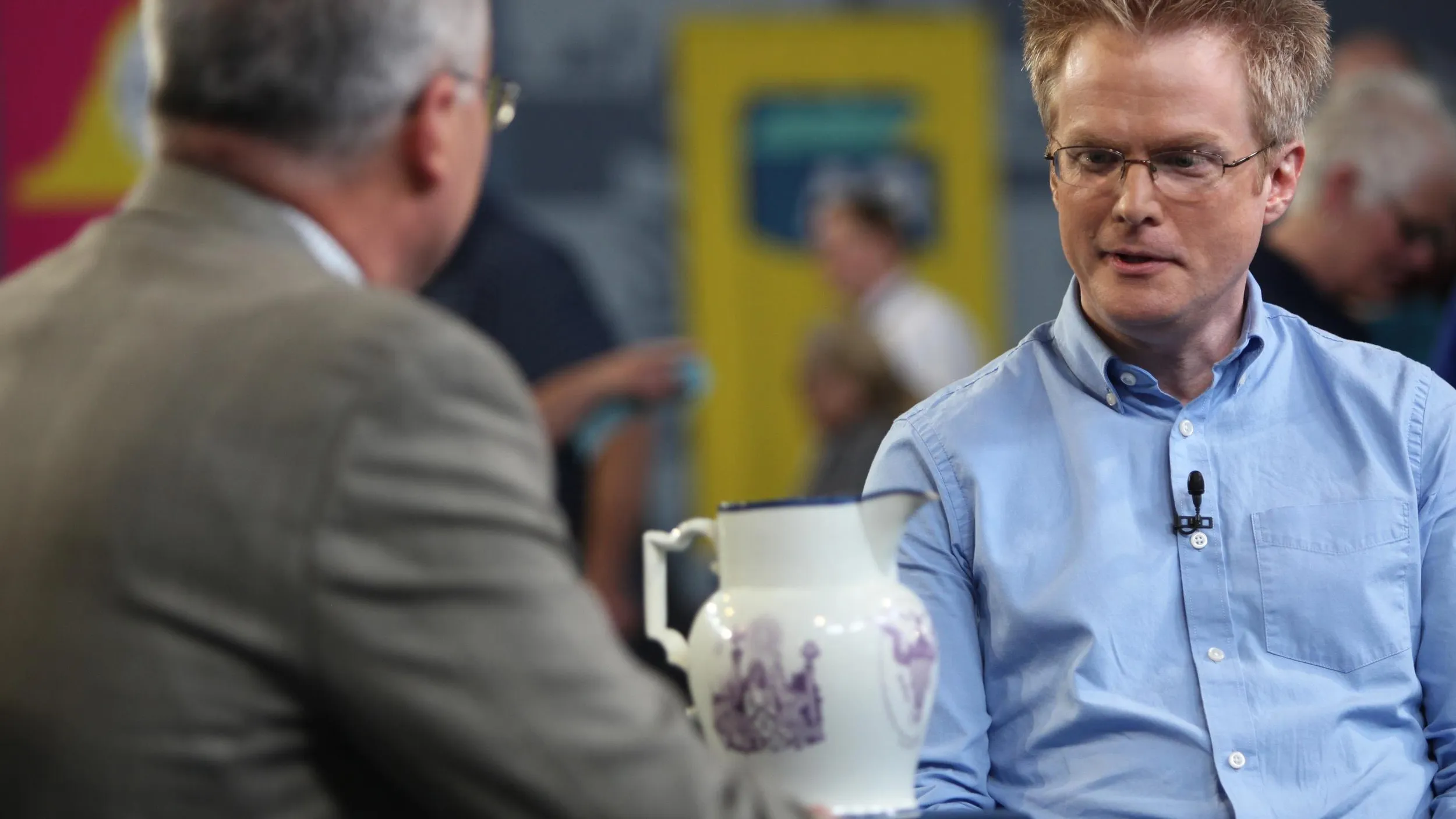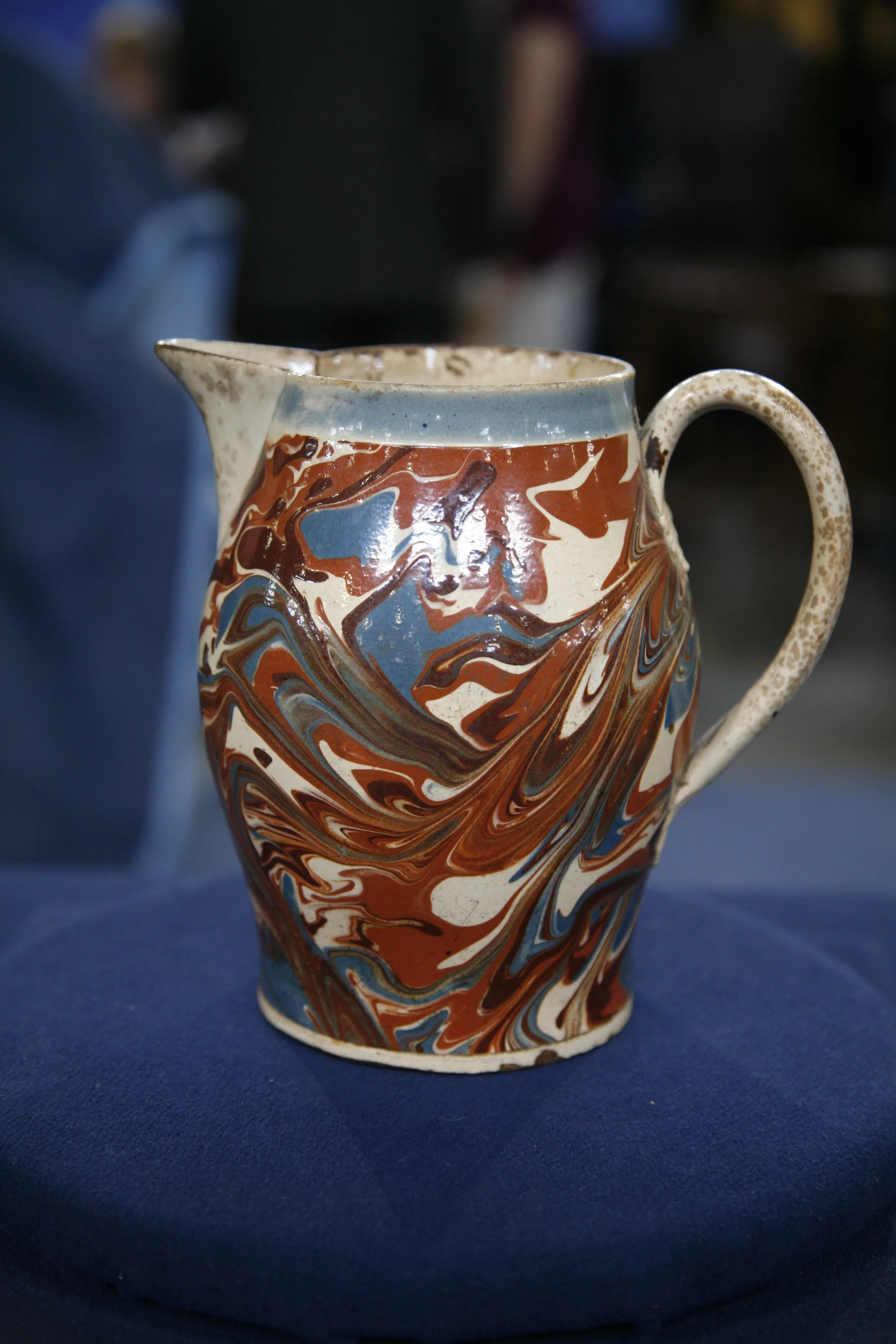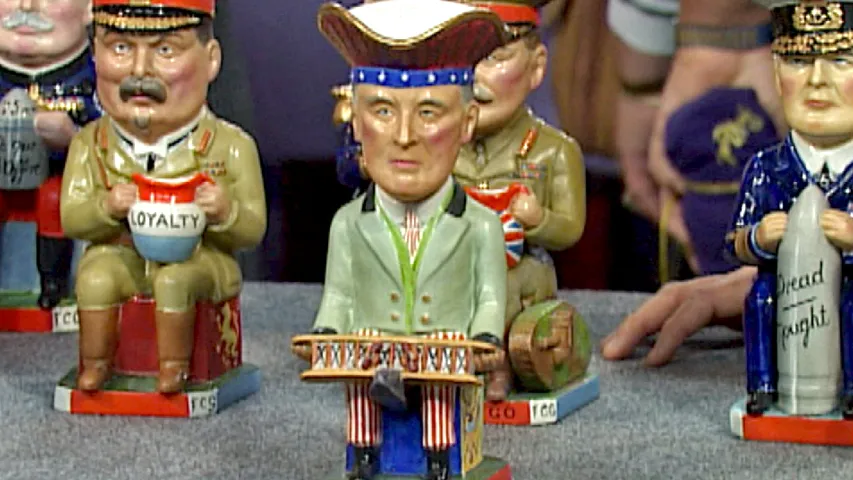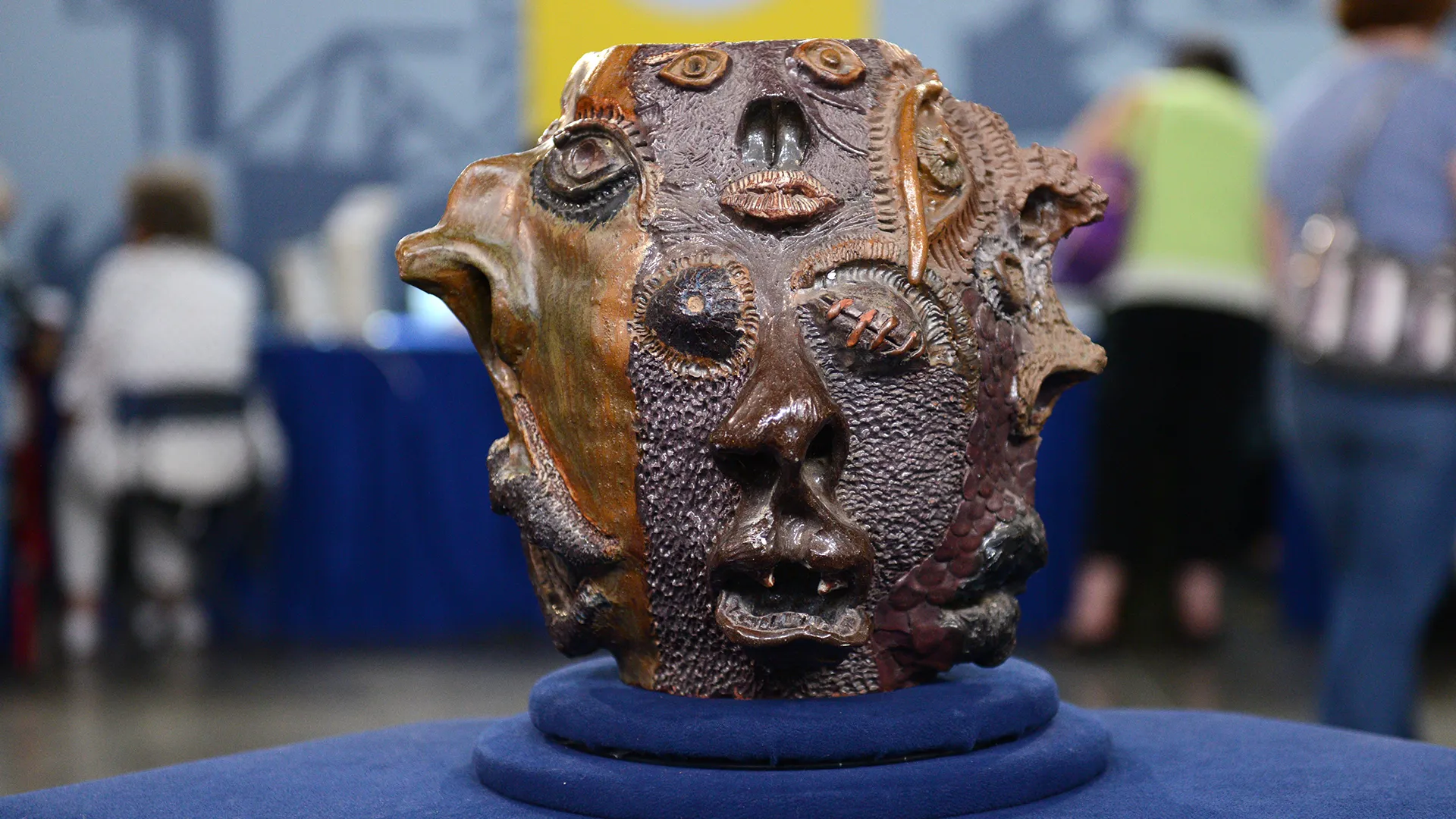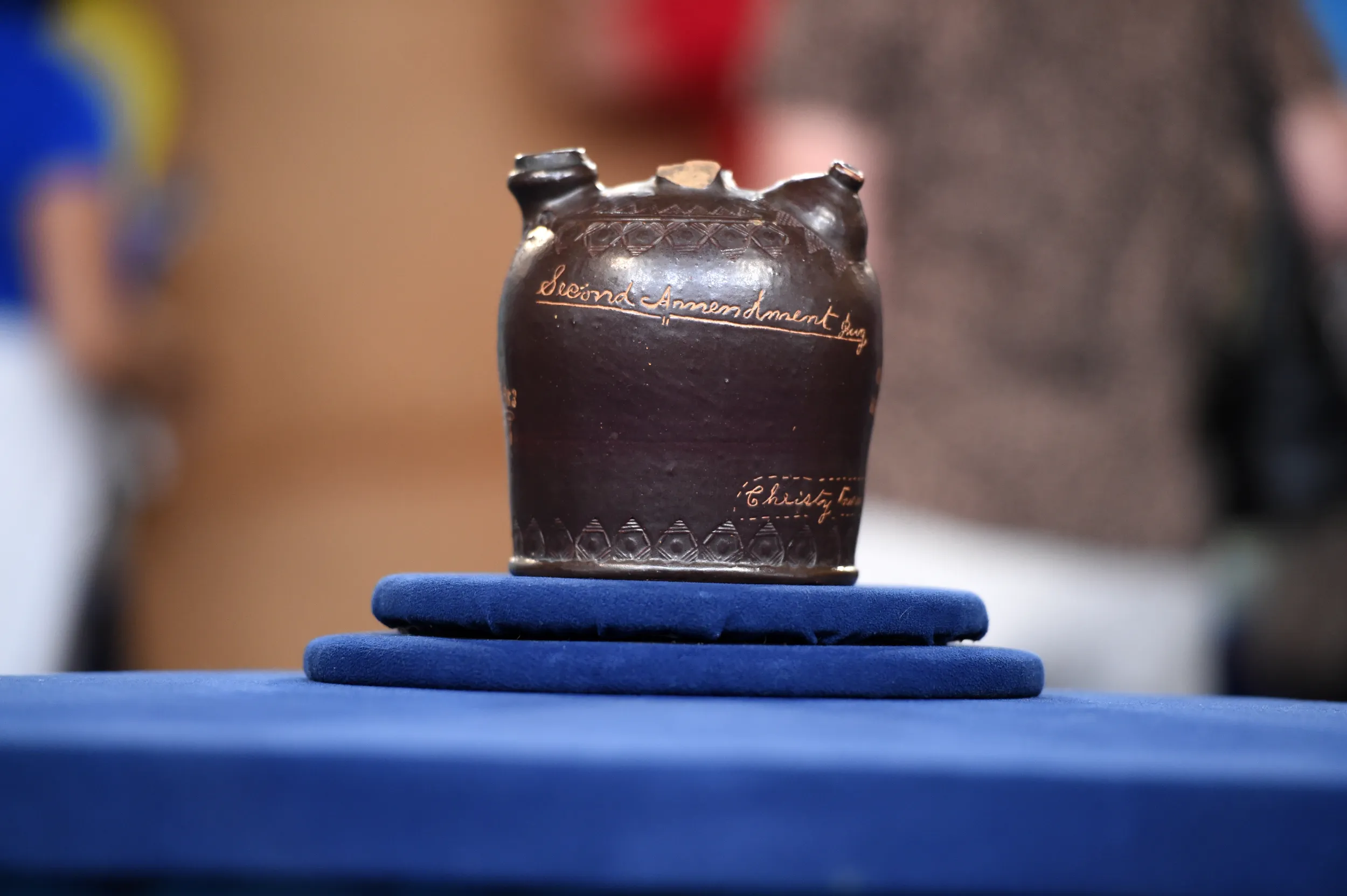GUEST: It was given to my grandfather in 1949 by a friend of the family. I have a letter from that friend of the family also that she explained that it was given to her mother 83 years prior to that. And that's really as much as I know.
APPRAISER: The transfer prints are a magenta color, which is very interesting and very unusual, though they're also very popular. The jug has a fabulous transfer on this side with emblems of freemasonry and there's so many emblems that it's hard to be specific, but you have these wonderful designs on either side. The jug is in a pearlware glaze. Now, pearlware is the bluish tinge that this has, and you can see on the rim there, you see little puddling. And if the puddling is blue, it's called pearlware. If the puddling is yellowish, it's called creamware. These were two different glazes that were put over this earthenware body. And I'm pretty sure this jug was done at what's called the Herculaneum Factory. Herculaneum was known for doing these wonderful transfer prints on these nice early jugs, and they were in the Liverpool area in England. What we have under the spout is really what makes the jug what it is. This wonderful American eagle and this inscription that surrounds the eagle, but with the date "1804" below it, and the name "Jefferson" to the right-hand side. Do you have any idea why 1804 and Jefferson?
GUEST: Well, I know that's the second time he was elected president.
APPRAISER: Exactly. So that was for the election year, and it really dates the jug. The value changes dramatically when you talk about historically important jugs, and American historical jugs have an added importance. If these just had the Masonic emblems on either side, we'd be looking at more of a decorative jug. In that case, the jug without the emblem on the front, its value would be in the range at auction of perhaps $400 to $600. This jug dates to 1804. It's an American historical jug, amazing condition. I mean, this is as nice a condition as you'd ever want to find a jug of this age.
GUEST: Thank you.
APPRAISER: In a well-advertised auction where you have Americana collectors, people collecting American commemoratives, I would expect it to sell in the range of $2,000 to $4,000.
GUEST: Really? Wow, that's nice to learn.

